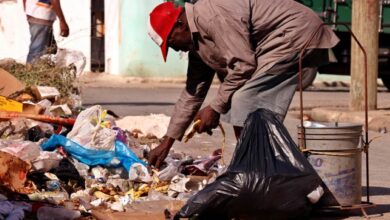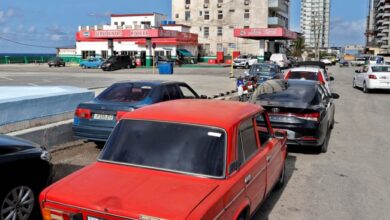Cuba: The Internet As A Tool Against the Regime
The Internet and social networks have been the main ally of the protests that have developed in Cuba.

Those that have been the biggest samples of disagreement against the island’s communist regime have a main engine: the internet. Photo: Luis F. Rojas
LatiAmerican Post | Santiago Gómez Hernández
Listen to this article
Leer en español: Cuba: El internet como herramienta de cambio contra la dictadura
Several days ago, thousands of Cubans took to the streets dragged by the lack of food, medicine, and democracy. Those that have been the biggest samples of disagreement against the communist regime of the island have the main engine: the internet.
It is no coincidence that just 2 years after Cuba allowed the mass use of the internet, the opposition has managed to organize itself in a better and much stronger way. Access to information from abroad, in addition to new alternative media other than official ones, has allowed Cubans to create narratives different from those imposed by the Government. Cases like that of the tweeter Yoani Sánchez, are signs that there are more and more dissident voices thanks to the social media platforms.
Aquí en La Habana… "casuales"… con militares en cada esquina de algunos barrios desde las protestas del #11JCuba Estamos en un clima totalmente asfixiante para reportar. Si alguien saca un teléfono para grabar o fotografiar puede suceder lo peor: insultos, multas o arrestos. pic.twitter.com/TE81HJtJX3
— Yoani Sánchez ???????? (@yoanisanchez) July 20, 2021
Well, a few weeks ago, the videos on Facebook that showed citizen discontent and social protest in a small town near Havana served as fire to the gunpowder of thousands of Cubans around the island. This type of live broadcast not only helped opponents to coordinate and inform themselves about the protests, it has also served as evidence of police abuse and government repression by the regime of protesters and opponents.
So much so that the strategies that the regime found to "appease" discontent was to block and limit the internet, and take citizens loyal to the revolution to the streets. The restrictions succeeded and the government of President Miguel Díaz-Canel managed to regain "calm." But the blocking of the information in which it has its citizens, will not guarantee that this first spark lived in July, will not end up exploding later.
Also read: Cuba: How a Song Challenges the Revolution
Cuba, as was Colombia, Chile, Ecuador, and the United States, are an example of how the Internet has served as a tool to organize social discontent. Although it is until this date that it has become daily in Latin America, this phenomenon comes from the time of the Arab Spring in 2010, in which the self-immolation of a fruit seller in Tunisia ended up overthrowing governments, starting wars civilians, achieve greater freedoms in authoritarian or monarchical regimes throughout the Arab world.
Despite great achievements, they have also served as mechanisms for spreading fake news and conspiracy theories. Movements in favor of flat Earth, theories such as that of Q'Anon, and, more recently, anti-vaccine movements (which already existed before, but have regained relevance due to vaccines against COVID-19) have been fed by the Internet and the networks social.
Indeed, the North American president, Joe Biden, affirmed that platforms like Facebook “are killing people”. The freedom to express themselves on social networks that have allowed opponents to rise up against the dictatorship in Cuba has also been the ideal breeding ground for spreading false rumors regarding COVID-19 vaccines and has made a large number of people refrain from getting vaccinated and believing conspiracy theories without proven evidence.
It is for this very reason that the White House persists in finding famous allies to encourage the vaccination of the majority of Americans. The most recent endorsement received by Biden and his vaccination program was from Olivia Rodrigo, the great global revelation in music and acting. The Disney girl seeks to encourage minors to also decide to receive any of the doses against the coronavirus from any approved laboratory.




